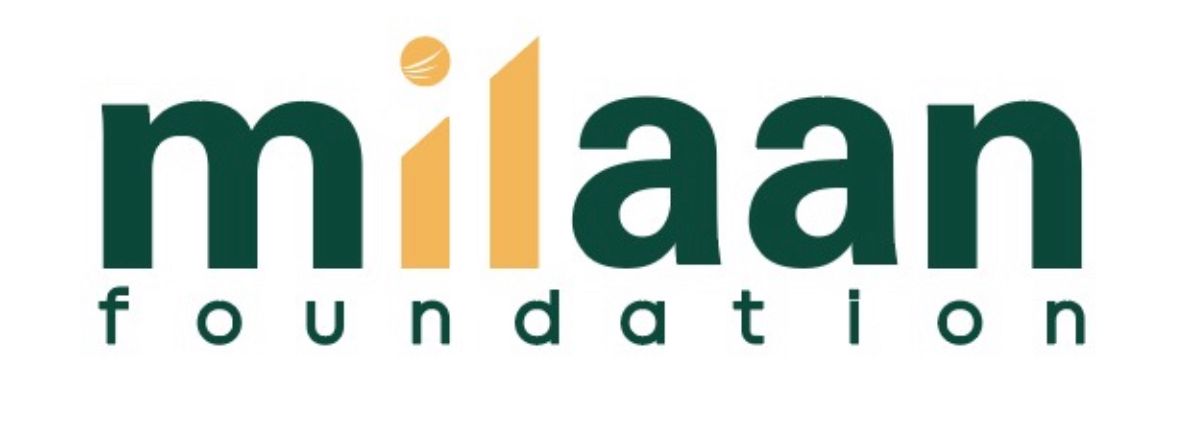14-year-old Simpi studies in 9th grade. Belonging to a rural village in Barabanki district, Uttar Pradesh, she resides in a small house with her family, including her father, a farmer, her mother, a house maker and her three siblings. Simpi considers her father to be the catalyst that motivated her to join Milaan’s Girl Icon Program – an experiential leadership journey for adolescent girls with the passion and will to fight for their rights.
Most girls in Simpi’s village are engaged in domestic work, but Simpi takes pride in the fact that she is not forced to do any household work, which gives her ample time to study.
Her mother often places a lot of restrictions on her, but her father continues to encourage her. When selected for the Girl Icon Program, she had to leave her village for residential training – her mother opposed the training, but her father said, “koshish nahi karogi toh pata kaise chalega” (if you don’t try, how will you know). That’s all Simpi needed to hear and she decided to make the best of this opportunity to train as a role model and peer educator. Simpi attended her first training in November 2018. As a part of the program, Girl Icons mobilise peer groups comprising 20 girls each and work as peer educators to deliver a life-skills curriculum every fortnight and take action on issues that bother adolescent girls in their community through social action projects.
“The girls in my community are very friendly, and soon after the first training, I was able to make a peer group of 20 girls.” Simpi’s confidence helped her establish a strong relationship and rapport with girls in her community. She ensured she provided safe spaces through the meetings for girls to interact, learn, share and grow together as a strong collective.
After she conducted her first peer meeting in the community, she was approached by a mother of two girls who were being forced into child marriage by their stepfather. Both sisters, aged 14 and 16, were forced to marry a 32-year-old man due to the debt their stepfather had accumulated.
According to UNICEF, at 15,509,000, India has the world’s highest number of child brides. The mother of these two girls was completely helpless, and with her daughters, was suffering from abuse at the hands of the stepfather daily. They continued to try to get out of the situation, but nothing seemed to work, and at last, the mother decided to approach Simpi.
Child marriage is prevalent across the country, but is far higher in rural areas than in urban localities. Girls from poorer families, scheduled castes and tribes, and with lower education levels are more likely to marry at a younger age. Simpi gathered all her courage and decided to help the mother and her two daughters, despite knowing that coming from a community she belongs to, it won’t be easy. Simpi, with her peer group, took charge of the situation and decided to resolve this matter, whatever the cost. Together, all 2
1 girls went to their house. Even after a persuasive dialogue, the stepfather was not convinced to stop the marriage. Simpi then decided to seek help from the police, who helped her succeed in her mission. The two girls now live with their mother separately; one has also joined Simpi’s peer group and works for the rights of girls like herself, who are victims of abuse and child marriage.
UNICEF states that 27% of girls in India are married before their 18th birthday, and 7% are married before the age of 15. Simpi strives to protect girls from social evils like child marriage that restrict their potential. She has also helped a 15-year-old girl who was forced into child marriage due to a property dispute. In this instance, Simpi convinced the girl’s father and helped him realise that child marriage is a crime. With Simpi’s persuasive efforts, the father decided to stop the marriage. So far, Simpi has successfully stopped 3 child marriages in her community. She continues to be trained by Milaan as an exemplary grassroots girl leader who is using her voice, choice and power to fight for what is rightfully theirs. “In the training sessions we are taught so many things through interesting mediums like activities, movies, and pictorial descriptions, which makes learning much easier,” shares Simpi.
Simpi is a keen listener and a smart observer. She has polished her knowledge around core issues like rights, leadership, sexual and reproductive health, gender roles, violence, safety, etc. Simpi was recently felicitated in the state-level program ‘Badi Si Asha – Sapnon Ki Koi Seema Nahi’ organised by Breakthrough. Her story of preventing three child marriages was selected as one of the winners of the ‘Most Impactful Stories’ by Breakthrough, which was a proud moment for everyone.
“The Girl Icon Program has given me the courage to fight for girls’ rights and take a stand against injustice. I don’t doubt my capabilities anymore, and I will be forever grateful to Milaan for helping me trust myself,” shares Simpi.


